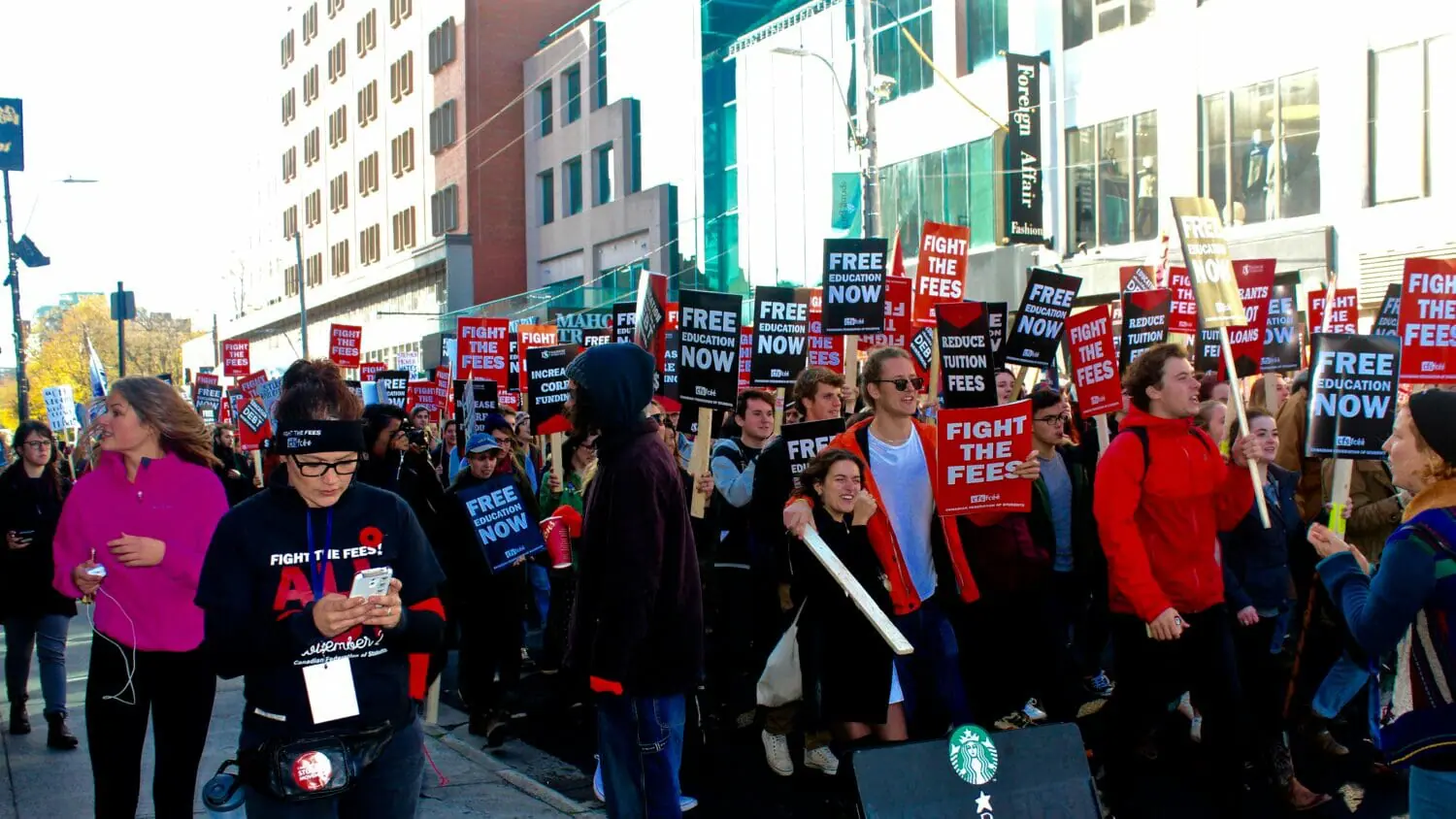I’m writing today in response to an article the Dalhousie Gazette published on Nov. 2 entitled “All Out: the photo that defined a moment in the students’ protest.” The photo the title is referring to depicted a crowd of students at the National Day of Action protest, myself among the throng, who marched past a person begging on one side of Spring Garden Road. The article noted that even in the midst of calling on change, not one of us stopped to spare a cent.
My interpretation of this piece is students are focusing on the wrong thing: we should be addressing “real” forms of poverty, like homelessness. Although it isn’t said directly, the implication in the article is the existence of an underlying hypocrisy. It implies the student movement as a whole is tainted by hypocrisies such as this, and students feel entitled to more despite the fact that so many in our society live with far less.
By taking this position, this article seems to me to establish a fantastically false economy, one that is all too common in political rhetoric today.
Equality is not a zero-sum game. Because I want a just world for students does not in any way negate the fact that I also want a world without poverty. Indeed, all of these struggles are symptoms of the bigger fight so many of us (myself included) face in trying to survive under capitalism.
I find it ridiculous for anyone to demand that students—in the midst of protesting the impoverishing system that deems university education a commodity—donate money in order for their protest to be legitimated.
While the article recognized that “[t]here were good practices of including members from the Mi’kmaq community, of recognizing we are on their land, of advocating an end to racism on campuses,” it goes on to say “everything just seemed like a play after that.”
Why would it be a play?
It’s pretty ungenerous (not to mention illogical) to say all other attempts at inclusion during the Day of Action were suddenly made hollow by the failure of student protesters to stop and give this individual some change.
The article dismisses the fact that organizers scheduled an accessible bus service, spoke about the need for expanded mental health services, and elevated the voices of radicalized, Indigenous, and queer students. This inclusion – the article suggests – is just an attempt to “chec[k] all the boxes.” I somehow feel the students who were engaged and enabled by these efforts would disagree.
Despite the provocative manner in which it was written, the (unasked) question is ultimately a good one – and indeed, there should be space for criticism within movements like this one. The answer to the pointed finger is pretty simple: yes, someone should have taken the time to reach out to the person who was begging, whether it was just to say hello or to invite them to march with us. I would think that this person should have been an organizer or a marshal.
The question is one I often return to as well: our universities are filling with the rich and white, very rapidly. How can they—who do not experience the struggle of working while doing school or suffer from institutional racism—ever campaign authentically on the behalf of students who do experience these obstacles?
The answer, for me, is it can only be done with careful understanding, compassion, and honesty. Despite out own struggles, acknowledging that we still maintain a level of privilege, which allows for this rarefied education, can do it. And by acknowledging – as was done on Wednesday, multiple times –we aren’t just protesting for ourselves, but for every single individual who has never had the opportunity to become a student.
We are, as a movement, imperfect. We need to keep pushing ourselves to do better, to be more inclusive, and to build out solidarity with other equity seeking groups and marginalized people. None of that undermines the legitimacy of what students were protesting on Nov. 2, or the protest itself.


Recent Comments